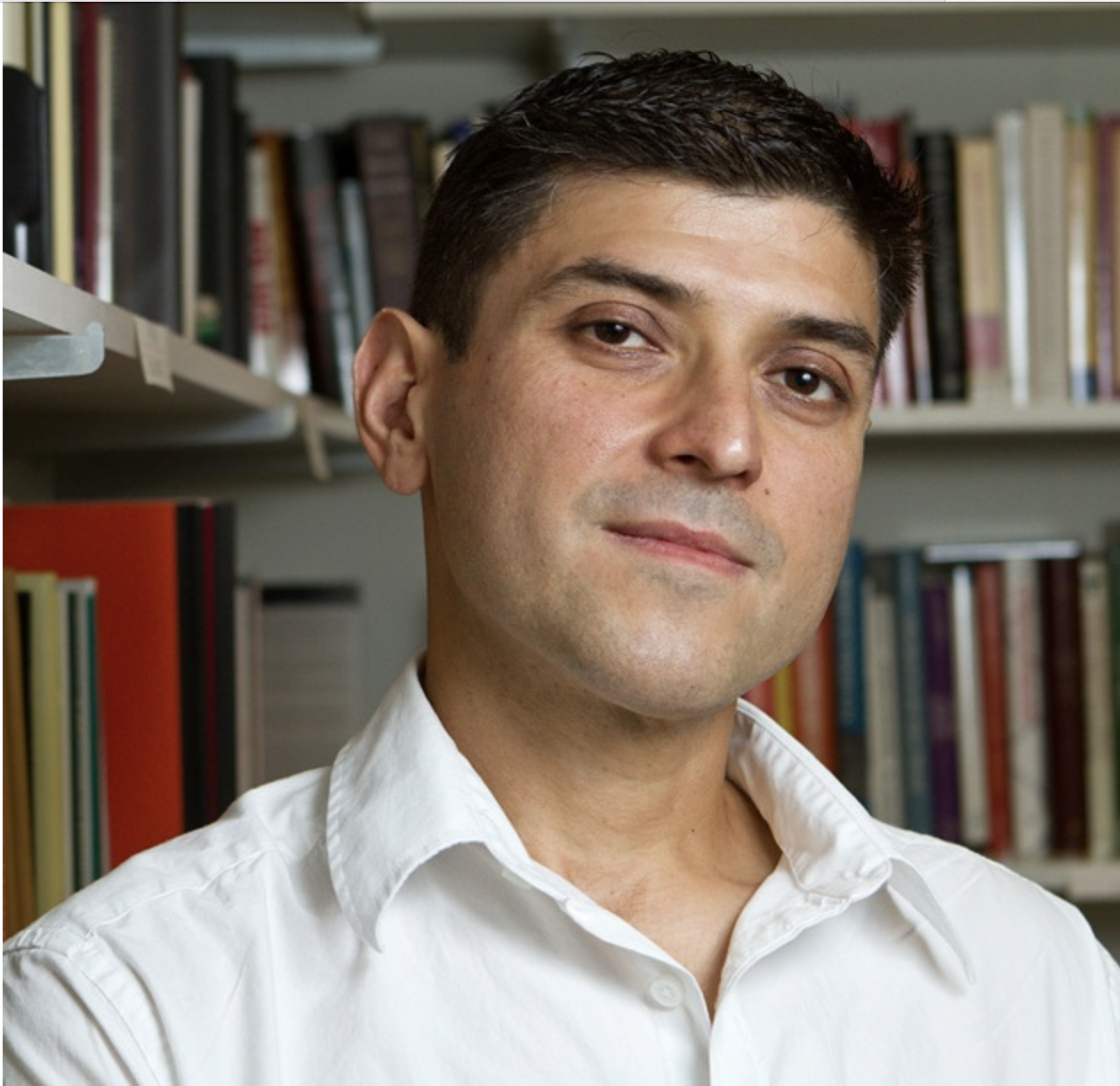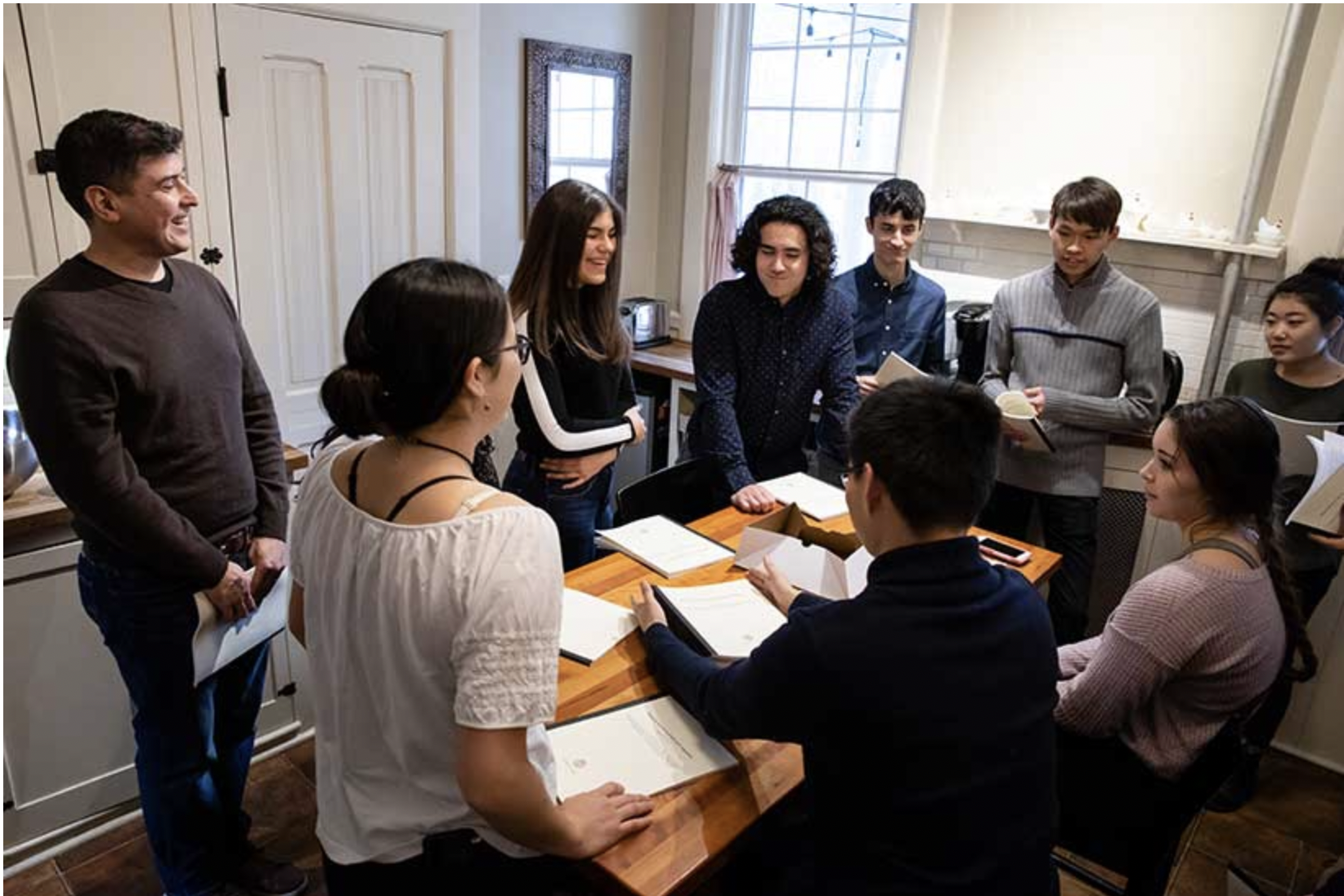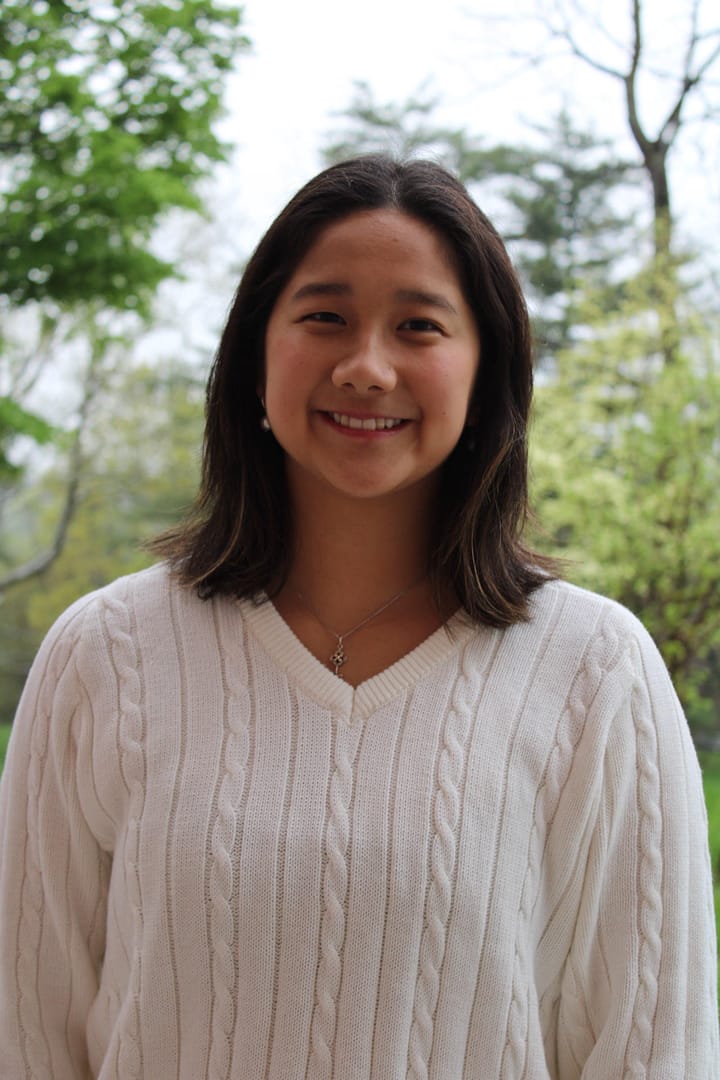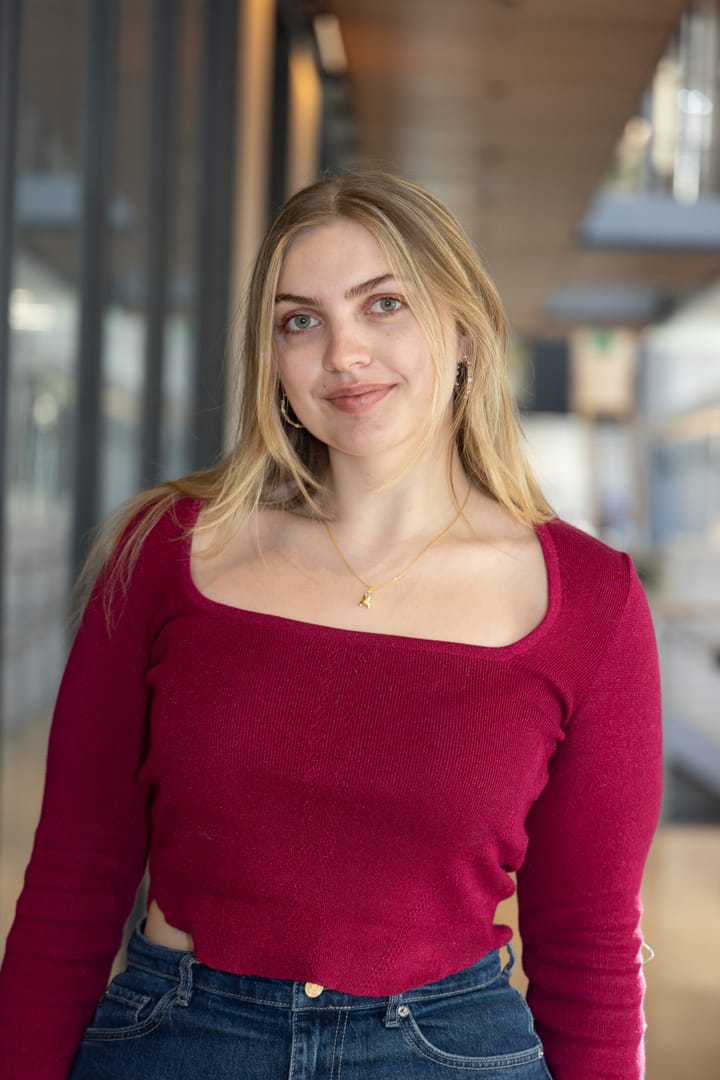Seeking Challenges, Embracing Community — Alumni Profile, Rick Lopez ’93
Rick Lopez’ ’93 career has been defined by a combination of restless drive and a dedication to community which has brought countless positive changes to the college.

Most people on campus know Rick Lopez ’93 for his steadfast guidance of the freshman class or his exciting new class on wine, but my conversation with him kept spiralling back to two themes: his restless enthusiasm for new challenges, and his emphasis on community. At first, those two themes might feel contradictory — how can this constant search for new challenges be reconciled with his interest in established community?
However, looking at Lopez’ history both at Amherst and beyond, their connection becomes clear. Whether working as Dean of New Students to help students settle into campus life by reorganizing orientation around squads, or helping organize the takeover of Converse Hall as co-president of La Causa in order to advocate for faculty diversification and better support for students, Lopez has spent much of his life putting his restless drive to work finding new ways to build up the community around him.
“A Whole Cluster of Us Took Off”
Although he now works at the intersection of history and environmental studies, Lopez grew up thinking about engineering. “I was the academic one in my family,” he said. “I was interested in everything, but so much when you’re successful [in school] tends to emphasize the sciences.”
This was especially true growing up in El Paso, Texas. “If you’re a smart kid in Texas, you think, ‘Yeah, okay, I’m gonna be an engineer,’” Lopez said. “That’s just what you do.”
Outside of school, Lopez enjoyed building things, borrowing tools from his father, who worked in construction. “He let me do whatever I wanted with his tools — as long as I didn’t use the good ones,” Lopez said.
He also worked closely with his peers to support each others’ educations in an under-resourced, primarily hispanic school within a racially divided city. “We were where [the other schools] sent all the teachers they wanted to get rid of,” Lopez reflected.
Additionally, Lopez’ high school had not historically offered the SAT, and only began doing so during his time there. “[The] principal didn’t want SATs in our school,” Lopez said. “He thought it would be wasting money on Mexican kids.”
Nonetheless, as the result of a few teachers fighting for it, the SAT was finally offered. “We all took the SAT, and we all did really well, to the principal’s chagrin,” Lopez recalled. “A whole cluster of us sort of took off … one friend went to Princeton, another friend went to Cornell, one went to Yale, all of us from a school where [previously] usually nobody went to college.”
Lopez found out about Amherst through the U.S. News and World Report’s college rankings, and was drawn toward the idea of a liberal arts education, which appealed to his desire for a broad range of intellectual pursuits. After a visit to Williams College, which flew him out to tour the school, Lopez took a bus to Amherst and was immediately taken in by the campus’s energy.
“I Started Thinking About What This Community Could Be”
Reflecting on his time at Amherst, Lopez says that “those four years changed my whole life direction.”
The combination of the college’s flexibility and his own restless curiosity was electric, and ultimately led him toward his current career in history. Along the way, Lopez would also explore the college’s open curriculum and work as co-president of La Causa to secure better support from the school for an increasingly diverse student community.
That isn’t to say that the transition to college was immediately easy. Although he had high school friends at various schools throughout the area, arriving at Amherst also presented some challenges for Lopez. “I had a really exciting experience, I had great roommates, I was excited about stuff,” he reflected. “But I was also trying to figure out this culture shock of what histories are taught and what histories aren’t taught. It was hard to find a space back then where I could feel, in a meaningful way, myself.”
Early on, Lopez tried joining La Causa, the college’s Latinx cultural organization, as a possible place of community. However, he initially found the experience off-putting, noting that his class, which arrived in 1989, was really the first in which Amherst had tried to recruit students at a national level from outside its normal feeder schools. As a result, most of La Causa’s members at the time were upper-class Latin Americans.
“Coming from a working-class background, I felt really disconnected,” Lopez said, although he added that he experienced “a great deal of goodwill and kindness within the La Causa community.”
As a result, he did not initially become heavily involved in the club. Instead, he started connecting with other Latino students across the Five Colleges. “We started putting together reading lists for each other, like a curriculum within a curriculum of all the things that weren’t really taught at the time,” he said.
Some of the books he read during this period, like Mario Garcia’s “Desert Immigrants: The Mexicans of El Paso, 1880-1920,” played a major role in shaping his intellectual interests. Fascinated by the way the book managed to open up what he described as “a window into a whole other universe,” Lopez decided to invite Garcia to speak at the college. “That talk was fantastic,” he reflected, “and it was just like a moment of realization [for me], like wow, at Amherst, you can do that.”
Eventually, Lopez and a large group of his friends joined La Causa all at once, in order to help change the culture of the organization. Lopez was later elected co-president. “At that point, I started thinking about what this community could be,” he explained.
Lopez’ co-chair, Gilberto Simpson ’94, began working to increase the dialogue and form connections between La Causa and the Black Students Union (BSU), an effort that Lopez embraced. As a result of this dialogue, when BSU began organizing to occupy Converse Hall after the acquittal of the police officers responsible for the Rodney King beating, La Causa was invited to join. Together, the organizations discussed a variety of issues on campus and came up with a list of demands for the diversification of faculty, increased support for minority and low income students, and the expansion of topics taught at the college to include more diverse literature and histories. Among other things, the takeover led to the hiring of the first professor at Amherst teaching Latinx studies, an accomplishment Lopez remains proud of today.
A Circuitous Path to History
Academically, Lopez found the freedom offered by the college exciting, and quickly realized that he was less interested in physics and engineering than he had initially thought. “I sort of wandered around departments, taking everything that looked exciting, until I declared art history,” he said.
During his junior year, Lopez, took his first research-based history seminar. “I realized I had to be a history major,” Lopez recalled, “so I canceled my study abroad plans, and figured out how to complete the entire major [in two years].”
For Lopez, much of the appeal of history was rooted in its ability to narrate stories, and in particular to access the types of stories that aren’t normally told. He pointed to the book “San José de Gracia,” which explores the history of what most people might dismiss as “this kind of nothing town in Mexico” in depth, as an excellent example of this.
However, after graduating, Lopez remained unsure about whether he wanted to pursue a career in history, and decided to keep exploring his options. After working for a time as an intern at the J. Paul Getty Museum in Los Angeles, Lopez moved back to El Paso to help support his family, who were struggling financially at the time. “But there were no jobs in El Paso back then,” he said.
Eventually, he ended up doing contract archaeology in the area, documenting the areas to ensure that development plans would not destroy their archaelogical and cultural heritage. Despite having no archaeological experience, Lopez’ endless curiosity worked well for him, leading him to hole up in the library while he wasn’t working in order to study archaeological practices and techniques.
During this time, he also started looking through documents describing the transferring ownership of the land he was examining. He wrote up a computer program to analyze the data, and tracked the gradual dispossession of the area’s Mexicano community as white landowners began monopolizing the land in the region.
“Then my boss stopped me and said, ‘Rick, this is really interesting, but it’s not what we’re paying you for,’” he recalled, “and at that point I realized I had to be doing historical research.”
After a year teaching junior high, Lopez applied to graduate school and ended up at Yale, where he initially studied the Cristero Wars, a series of religious conflicts in 1920s Mexico that arose in response to state-enforced secularization. But as he worked, he realized he was less passionate about the project than he had thought. He refocused toward the type of intellectual and cultural history he preferred, and ended up writing a dissertation on the role artisan communities played in constructing ideas of Mexican nationalism in the years after the Mexican Revolution.
Lopez’ path to graduate school was circuitous, but he wouldn’t have preferred it any other way. “Taking some time off to figure out what on earth I [was] really interested in doing was really useful,” he reflected, adding that it can be easy to burn out in graduate school if you don’t remain flexible and committed to finding the work you are passionate about.
Back to Amherst
After receiving his Ph.D., Lopez worked for a time as a postdoc at Northwestern University. At the time, he thought he wanted to teach at a large university, but at one conference he ended up talking to Tim Burke, a professor of African history at Swarthmore, about his plans. “I was saying that I love being able to teach, I love being able to research, and I want to be able to have conversations with my students,” Lopez recalled. “Then he stopped me and said, ‘Everything you’re describing exists at like 10 schools in the country, and they’re all liberal arts.’”
Fortunately, Northwestern had just hired Amherst’s Latin American historian at the time, Brodie Fisher, and Lopez immediately applied for her old job. He got it, joking that “I was really lucky no one asked me about the Converse takeover, that would’ve thrown me off my game.”
At Amherst, Lopez quickly settled into a rhythm of teaching, writing, and publishing as he looked to secure tenure. During this time, he also became involved in the Five College Latin American Studies Program, and soon became its chair. Again, he looked for ways to use this position to improve the Five College community, and began working with his colleagues to increase the number of speakers from Latin America at the colleges as well as the number of events that could bring together students interested in Latin American studies from all Five Colleges.
In 2014, Lopez became the college’s dean of new students, a role he says has been one of the most rewarding parts of his time at the college. Reflecting on his own difficulties in feeling like he could “bring [his] full self to Amherst” as a student, Lopez formalized the use of the FLI (first-generation and/or low income) label at the college, which he explained “makes it into not just something you can talk about, but something you can own. If you don’t talk about it, it feels like no one is supposed to talk about it.”
As dean of new students, Lopez has also worked to reform orientation week, moving the focus away from big lectures and more toward small, intentionally diverse squads of students, who can immediately start to get to know each other and feel like part of a group on campus.

Looking Forward
Lopez will be on sabbatical next year, writing full-time about his current research, which focuses on the development of the idea of a specifically Mexican national landscape, and asks what processes need to occur for a vision of an environmental landscape to be “claimed” by a nation. After that sabbatical, Lopez will return to the college, where he will continue to teach, and explore ways to further enhance the campus community.
Whatever Lopez works on next, one thing is certain: His combination of restless enthusiasm and interest in community building makes Lopez a unique fit for Amherst’s philosophy, which is itself based around intellectual curiosity and unbounded exploration within a supportive community.
It’s no surprise then, that Lopez describes himself as “a genuine booster of Amherst, [someone] who is unabashedly excited about this college.” Over the course of more than 30 years of on-and-off involvement with Amherst, first as a student, and now as a professor and dean, this excitement has helped contribute to a huge range of positive changes in the campus community.
Correction, Oct. 28, 2022: A previous version of this article stated that Lopez experienced racism within La Causa. In fact, while Lopez experienced some racism within the Latino student community, he clarified that this occurred entirely outside of La Causa.
That version of the article also excluded the role of Gilberto Simpson, Lopez’ La Causa co-chair, in creating the connections between BSU and La Causa.





Comments ()